This post contains affiliate links. Please see our disclosure policy.
Atakilt Wat – Ethiopian Cabbage Potato Carrots. Easy spiced side full of amazing flavor. free of Dairy, egg, corn, soy, yeast, nut, gluten, grain.
Seattle has an abundance of Ethiopian food. After Indian, Ethiopian is always the next choice when we want some spice and deep flavors in the meal. The veggie platter filled with 2 to 4 different simmered lentil dishes, greens, simmered okra, cabbage pcarrot wat, all served up over the huge Injera. There are several Ethiopian restaurants in Seattle. A lot of them however are usually a miss when it comes to maintaining the taste and quality of the food. Or maybe I am picky 🙂 Seattle-lites, what is your favorite Ethiopian restaurant?
Atakilt Wat/ Atkilt wot is a cabbage side that is so close to the Indian cabbage dishes and yet has its own flavor profile. The traditional recipe may or may note use uses niter kibeh which is butter/ghee slow-infused with whole spices like cardamom, cinnamon, fenugreek, cloves, ginger, garlic etc. by cooking everything on low heat for hours. You can make niter qibe/ kibeh with coconut or olive oil(see my second book for a recipe) and use about a Tbsp in this recipe instead of all the spices and oil. Since I don’t usually have the infused oil ready, I add the spices to oil in the second step to infuse the oil while cooking (indian food style) for my interpretation of atakilt wat. You can omit the spices. Cook the dish at lower heat for best results. Serve with Ethiopian flat breads or other flat breads and lentil stews.
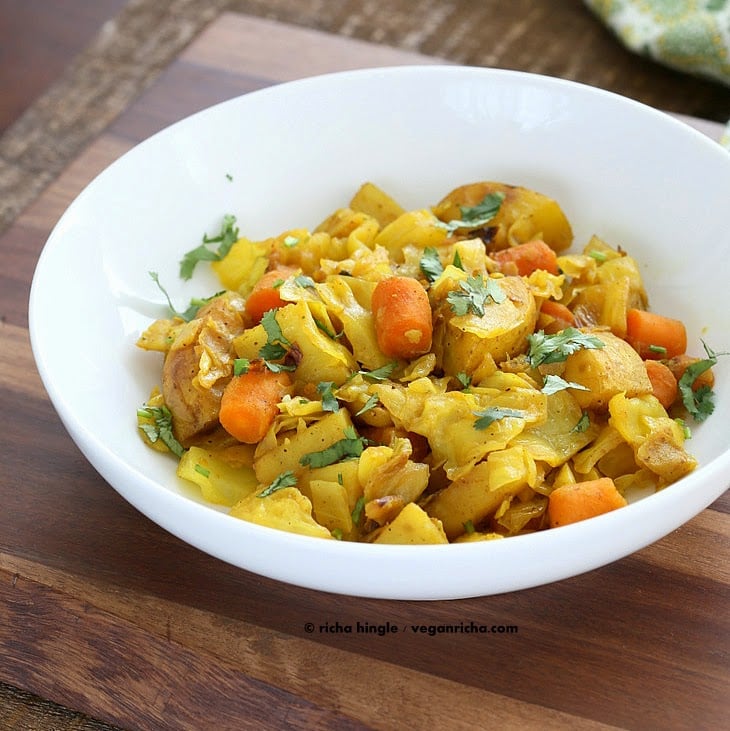
More Ethiopian from the blog.
Steps:
cook the onion, garlic, ginger for 5 minutes.
Add all the spices and cook to infuse the oil to make a quick niter kibeh.
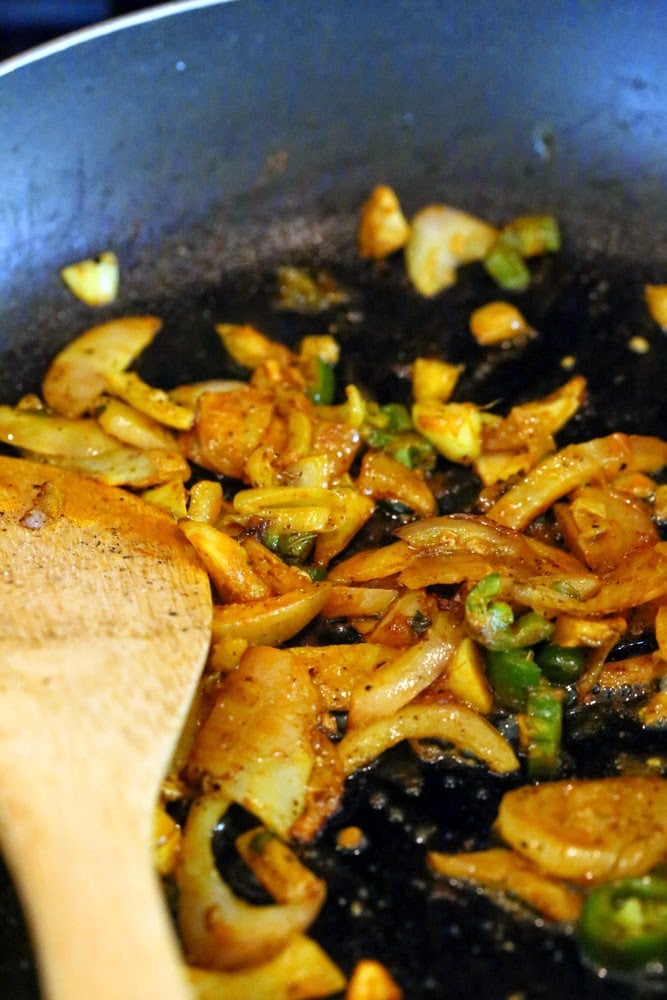
Add the veggies, cover and cook until tender.
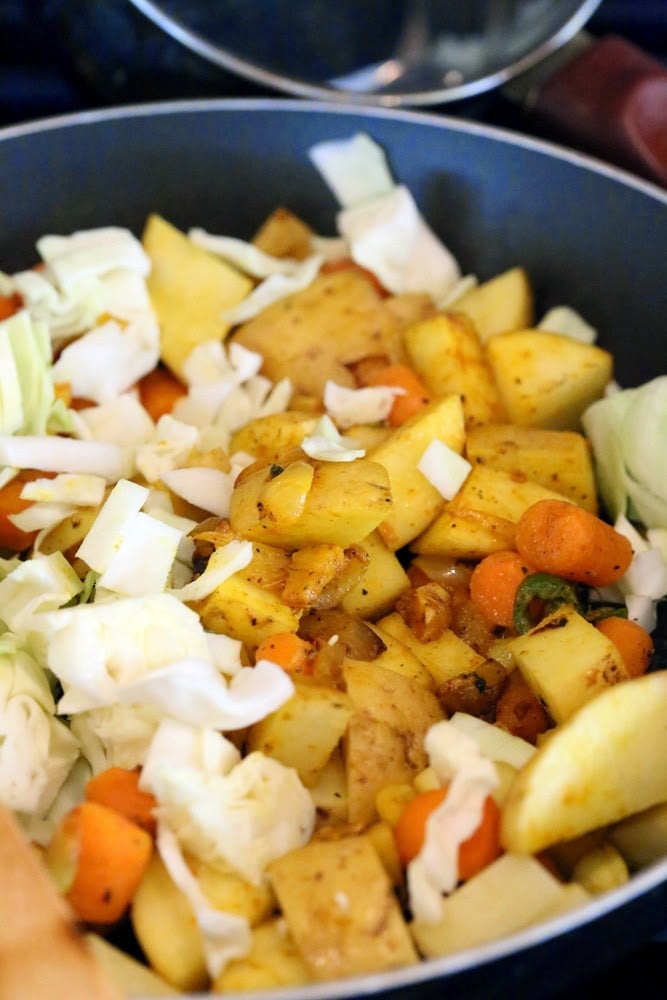
Serve hot.
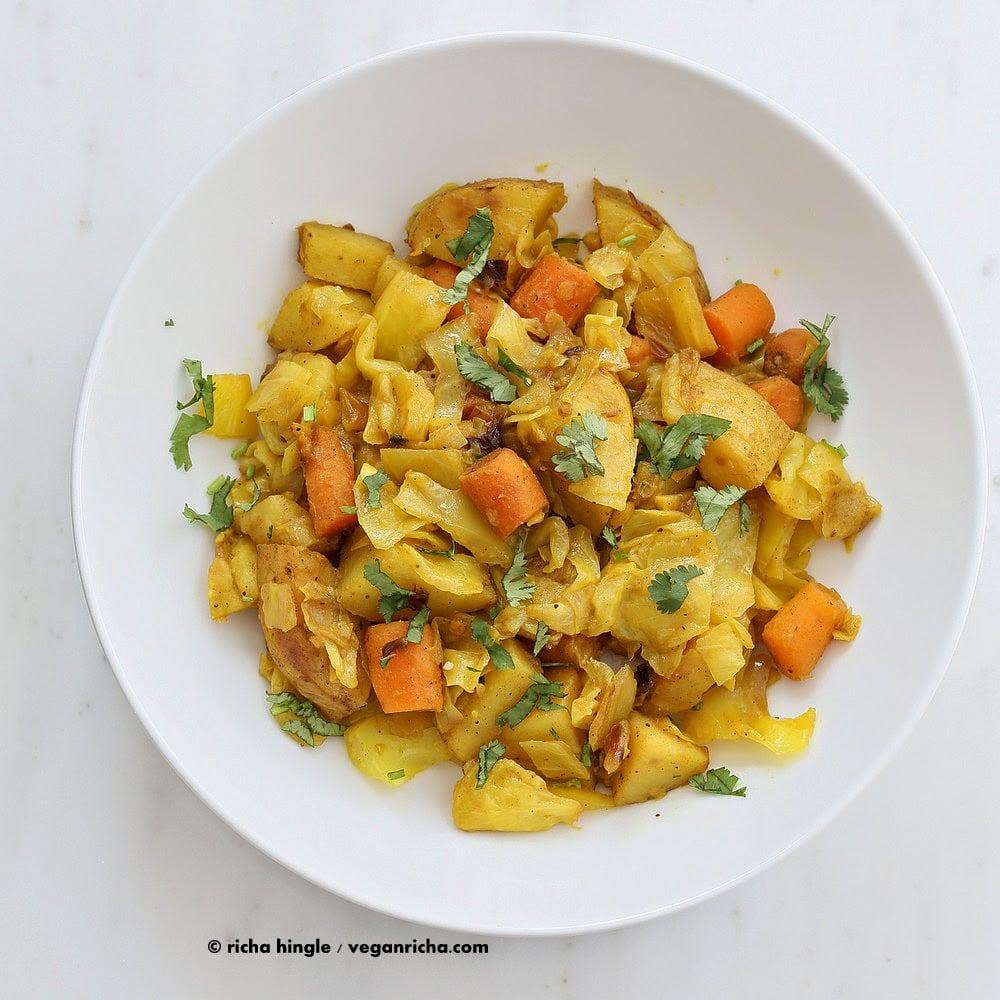
Video:
Atakilt Wat - Ethiopian Cabbage Potato Carrots. Vegan Gluten-free Recipe
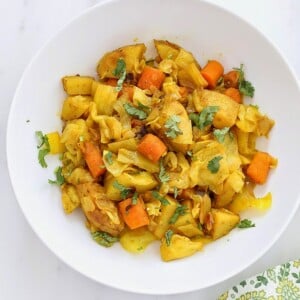
Ingredients
- 2 tsp olive oil or vegan butter, divided
- 2 cloves garlic, minced
- 1 tsp minced ginger
- 1 green chili, chopped (optional)
- 1/2 cup chopped onion
- 1/4 tsp cumin powder
- 1/2 to 3/4 tsp turmeric powder
- 1/4 tsp fenugreek seeds or powder
- 1/4 tsp cardamom powder
- 1/4 tsp cinnamon powder
- 1/8 tsp cloves powder
- a generous dash of black pepper
- 3/4 cup sliced carrots
- 2 medium potatoes, chopped, 1.5 loaded cups
- 1/2 head of cabbage, finely chopped
- 1/2 tsp salt
Instructions
- In a large skillet, add 1 tsp oil and heat at medium-low. Once hot, Add garlic, ginger, chili, and onion. Mix, cook for 4 minutes.
- Add the cumin, turmeric, fenugreek seeds, cardamom, cinnamon, cloves and black pepper. Mix and cook for 3 minutes to infuse the oil and to continue cooking the onion to golden.
- Add the carrots, potato and mix well. Add cabbage and 1/4 tsp salt. Mix well, cover and cook for 15 minutes. Stir once in between.
- Add 1/4 tsp or more salt, and 1 tsp olive oil. Mix in. Deglaze at this time with water if needed Cover and Cook for another 15 minutes or until the potatoes are tender. *
Video
Notes
Nutrition
Nutrition information is automatically calculated, so should only be used as an approximation.
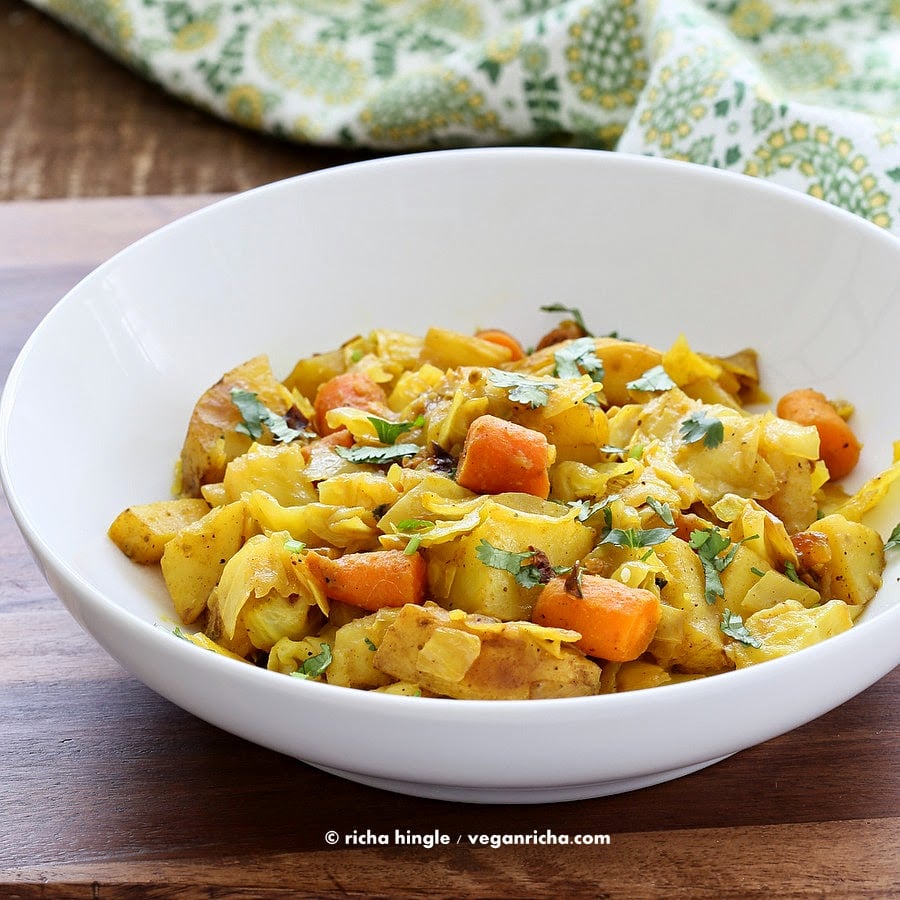
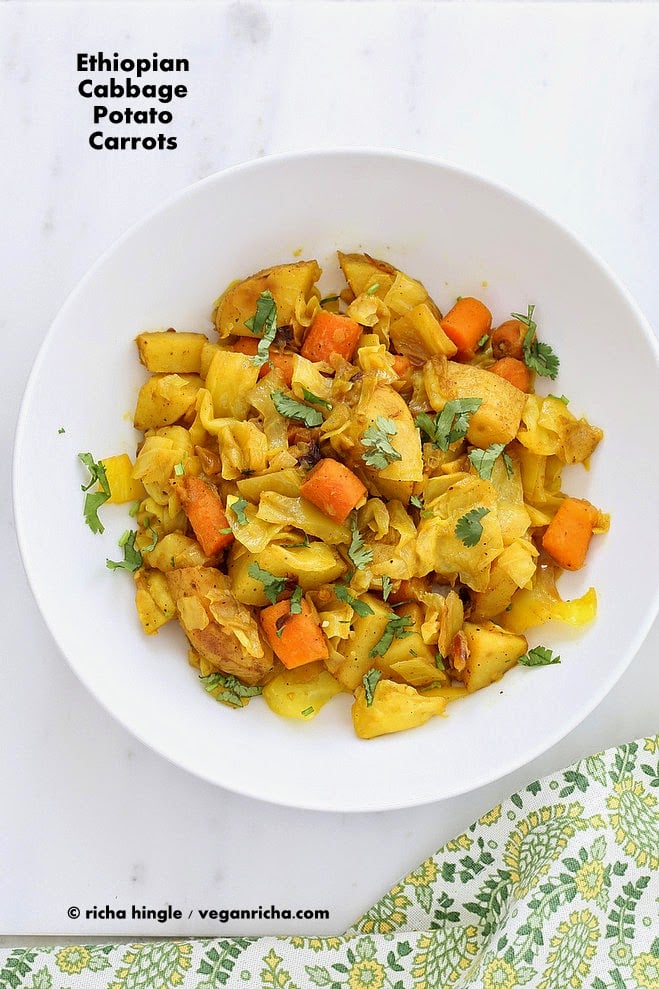

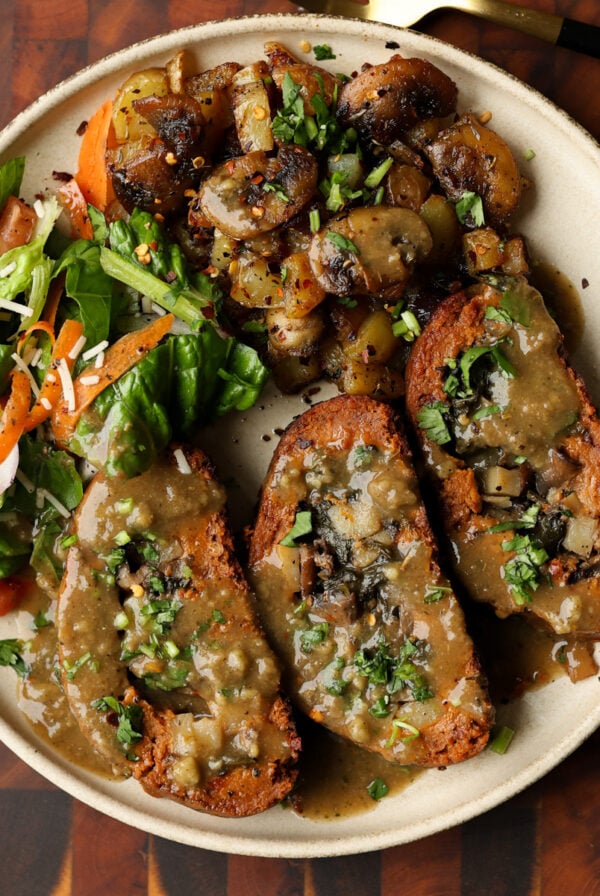
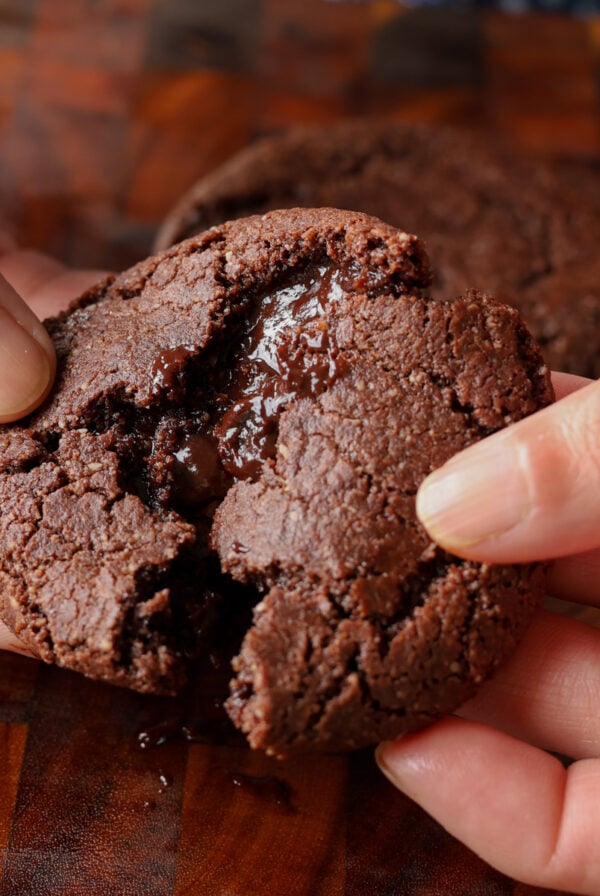
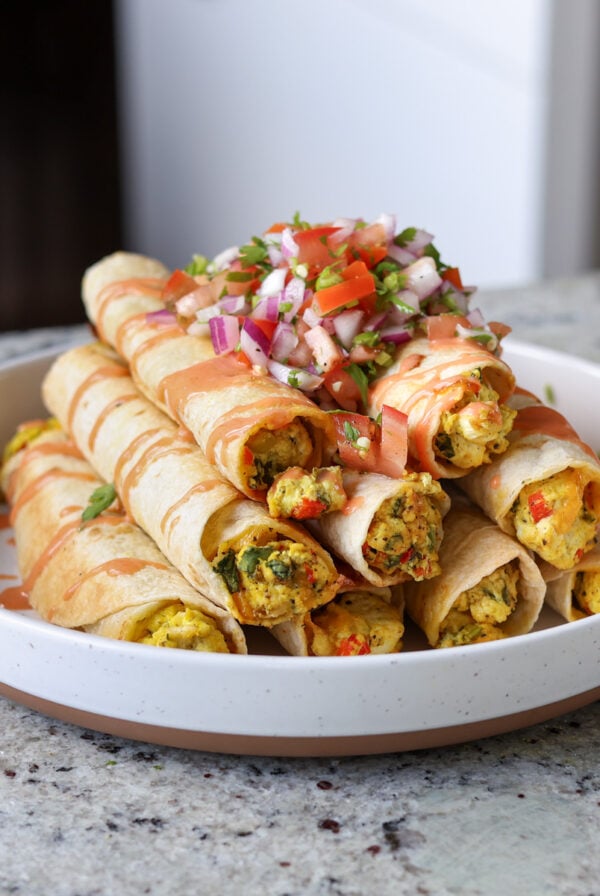






We love Ethiopian food and this is good. I would have given it 5 stars but I’ve made this several times and there seems to be an error in the recipe. After all the ingredients are added, it needs about 1 cup of water, turn burner to low and then cover. The instructions imply it only needs a little smidgen of water, but it should be almost a stew like consistency and cooks through. The blend of spices is delicious and it’s great as leftovers
Yes you can add more moisture and cook longer. Also depends on the lid and pan. A week fitting lid keeps the moisture from the cabbage in and you might need less that way
I really like this dish and would like to freeze some. Do you know if it freezes well?
yes the potatoes will have a slight textural change and the carrots and cabbage will release some water which you can cook away.
Freezing may change the texture when you thaw it out again but the taste should be the same.
I just made it and ate it over cooked beans. Delicious and full of flavour.
I love Ethiopian stews and this did not disappoint. It is excellent.
I’m going to give this a shot without oil. Any tips?
just use broth and deglaze in between
I tried that, and it didn’t really work out. It didn’t burn but seemed very dry and just seemed like something was missing. This may just not be a recipe that works well without oil.
You have to keep adding water or broth in between and also use a tight fitting lid, so the moisture stays in. Also double up on th spices as spices tend to bloom better and faster in the oil.
I did keep adding broth, and it did not stick so that worked fine. Also, I used a tight-fitting lid. Still, it was dry, even though it didn’t burn. I would not have wanted to double the spices, however, because it was very spicy, almost too spicy, just using the amount specified. I really think this was just a lack of fat problem that made it less than satisfying. Some recipes work by adding some other form of fat like a nut butter or tahini, or by adding some umami like miso, but I just wasn’t sure what would work here. I ended up putting some soy sauce on it, which helped with the dryness and added a bit of umami, but it still wasn’t quite right. Ultimately, I ended up adding the leftovers to some coconut red lentil dal, and that was quite tasty!
Delicious on every level! I’m a big Ethiopian cuisine fan and served This with collards (Gomen). So delicious!
I am not a fan of cooked cabbage, but definitely a huge fan of this recipe. Love to eat it, and it goes well with injera or as s side dish.
awesome!
I made this last night and only changed a bit as I added tempeh that needed to be used and 1 jalapeno for a little heat.
It is truly delicious! I will make again for my vegan Friendsgiving next weekend.
SO so delicious and easy to make! Thank you for this healthy, inexpensive and delicious recipe.
thanks!
Decent, but not great.
Maybe add more of the spices. The age of the spices and amount of the cabbage used affects the flavor payoff